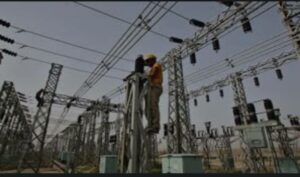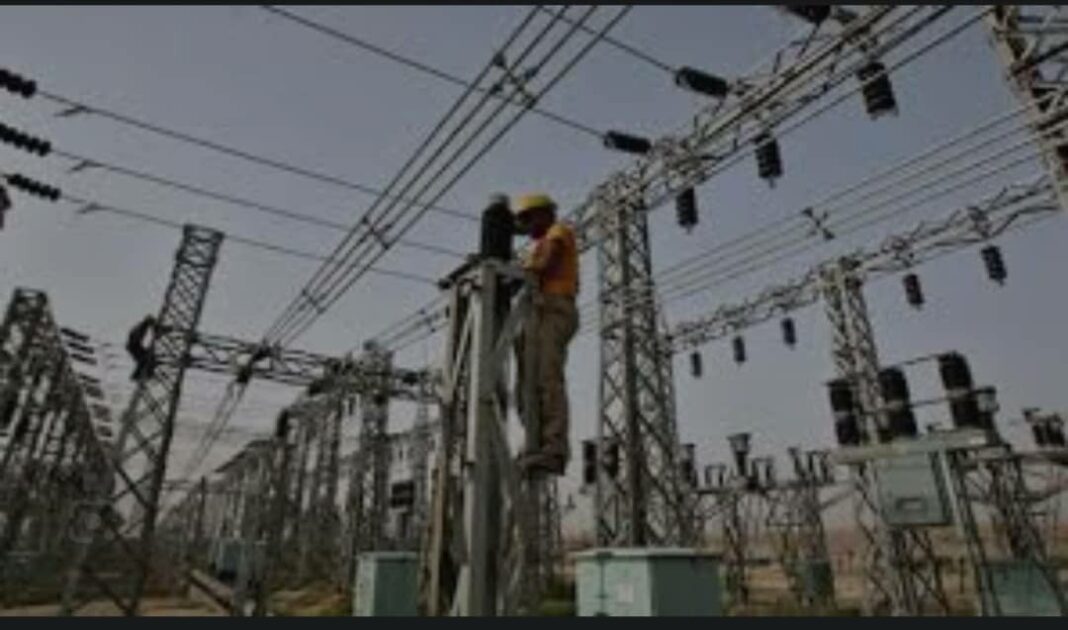15th April 2025
As the electricity distribution companies threatened a shutdown on Monday, minister of Power has pledged to address N4tn electricity debt owed by GenCos.
The special adviser to the Power Minister, Bolaji Tunji, who weighed in on the development, said the government is aware of the development and is making concrete steps to resolve the lingering debt issue.
He said as part of the steps taken by the government, the Ministry of Finance will take charge of the payment very soon.
In a chat on Monday, the media aide in response said, “We are not unaware of this debt arising from the FG’s commitment on subsidy. Part of the debts are legacy debts, which were on the ground before the Minister of Power assumed office.
“The Minister of Power has repeatedly harped on this, knowing the implication of such debts to the operations of the various power sector stakeholders, especially the GENCOs.
The Minister of Power is very much concerned.
“The issue is being discussed with the Ministry of Finance, making a case for how the debt must be paid. We expect the Ministry of Finance to take action on this soon.”
If nothing is done about the debt, a nationwide blackout looked imminent, with outstanding debts now exceeding N4tn, comprising N2tn for power supplied in 2024 and N1.9tn in legacy debts, the 23 power generation companies warned that they can no longer guarantee a steady electricity supply due to the worsening liquidity crisis in the electricity market.
READ MORE; FG promises improved power infrastructure
The firms, under the aegis of the Association of Power Generation Companies, had raised the alarm in a statement issued on Monday and signed by the Chairman of the Board of Trustees, Col. Sani Bello (retd.).
The companies noted that plants were being paid less than 30 per cent of monthly invoices for power supplied to the national grid, stating that the continued non-payment for electricity generated and consumed on the national grid was pushing the Nigerian power sector towards a total collapse.
They said the debt burden and operational constraints currently facing the companies could force an imminent shutdown of power plants if urgent interventions were not implemented.
In the statement, titled ‘Over N4tn unpaid invoices threaten GenCos imminent shutdown’, they lamented the lack of a clear financing plan from the Federal Government, alongside worsening fiscal and operational constraints within the Nigerian Electricity Supply Industry.
They also accused the Nigerian Bulk Electricity Trading Plc and other stakeholders of neglecting GenCos in the application of the NESI’s “waterfall arrangement”, which sees other service providers receive 100 per cent of their market invoices while GenCos get as little as 9 per cent to 11 per cent of what is due.
The statement read, “The Power Generation Companies (‘GenCos”) are constrained to issue this press release to draw the attention of the Federal Government and key stakeholders to the need to urgently address the issue of inadequate payment for electricity generated by them and consumed on the national grid, which is currently threatening the continued operation of their power generation plants.
“Against the backdrop of the many challenges facing the power sector in Nigeria, the crises from cash liquidity are on the top burner and have reduced GenCos’ ability to continue to perform their obligations, thereby threatening to completely undermine the electricity value chain.
READ MORE; MTN, Airtel Africa Collaborate To Cut Costs, Expand Network Reach
“In light of the severity of the issues highlighted above, the GenCos are requesting that immediate and expedited action be taken to prevent national security challenges that may result from the failure of the GenCos to sustain steady generation of electricity for Nigerians.”
The Minister of Power, Adebayo Adelabu, had in February, disclosed that the government owes electricity generation companies and electricity distribution companies over ₦4 trillion in electricity subsidies.
According to he minister in a breakdown, N2 trillion is owed to GenCos as legacy debt, while another N1.9 trillion is owed to them as part of the electricity subsidy for 2024, while DisCos are owed N450 billion for the 2024 electricity subsidy.
In the statement released under the aegis of the Association of Power Generation Companies, the GenCos expressed deep frustration over what they described as “inadequate payment for electricity generated and consumed on the national grid. They described it as a major threat to the viability of their power plants.
The group said despite investing significantly in ramping up generation capacity since the sector’s privatisation in 2013, the absence of firm contracts, poor enforcement of power purchase agreements, and persistent non-payment of invoices have crippled their operations.
The companies also pointed out that hopes of being settled through external support mechanisms like the World Bank’s Power Sector Recovery Operation have been dashed due to other market players’ failure to meet required performance targets.
The statement noted that, “GenCos, on their part as responsible investors with patriotic zeal, have made large-scale investments and have continued to demonstrate absolute commitment by ramping capacities in line with their contract over these 10 years, amid system constraints, policies & regulations that are not investor-friendly, increasing debts owed by the FGN without a clear financing plan, a lack of firm contracts and a market without securitisation but based on best endeavours, thereby hampering future planning.
“Notwithstanding this and other severe difficulties the GenCos have battled with since takeover in 2013, they have kept to the terms of their contractual agreements by ramping up capacity, which has been largely constrained systemically.
“Against the backdrop of the many challenges facing the power sector in Nigeria, the crises from cash liquidity are on the top burner and have reduced GenCos’ ability to continue to perform their obligations, thereby threatening to undermine the electricity value chain completely.
“The GenCos expectations of being settled through external support, such as the World Bank PSRO, have also been dampened due to other market participants’ inability to meet their respective distribution-linked indicators, enshrined in the Power Sector Recovery Program.”
The GenCos warned that unless urgent and coordinated steps are taken to address the liquidity crunch, Nigeria’s electricity supply could collapse, with dire consequences for national security, economic growth, and public welfare.




